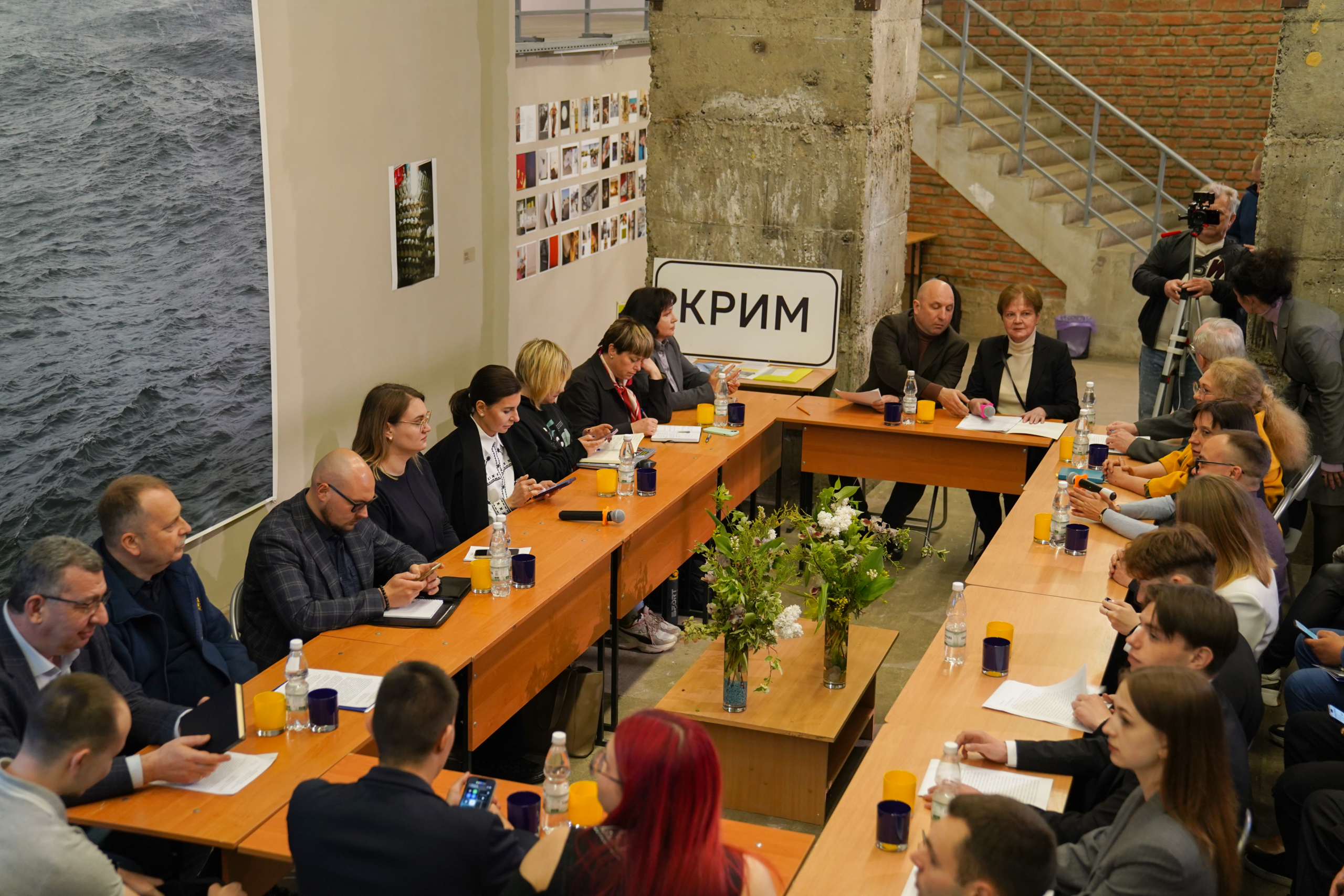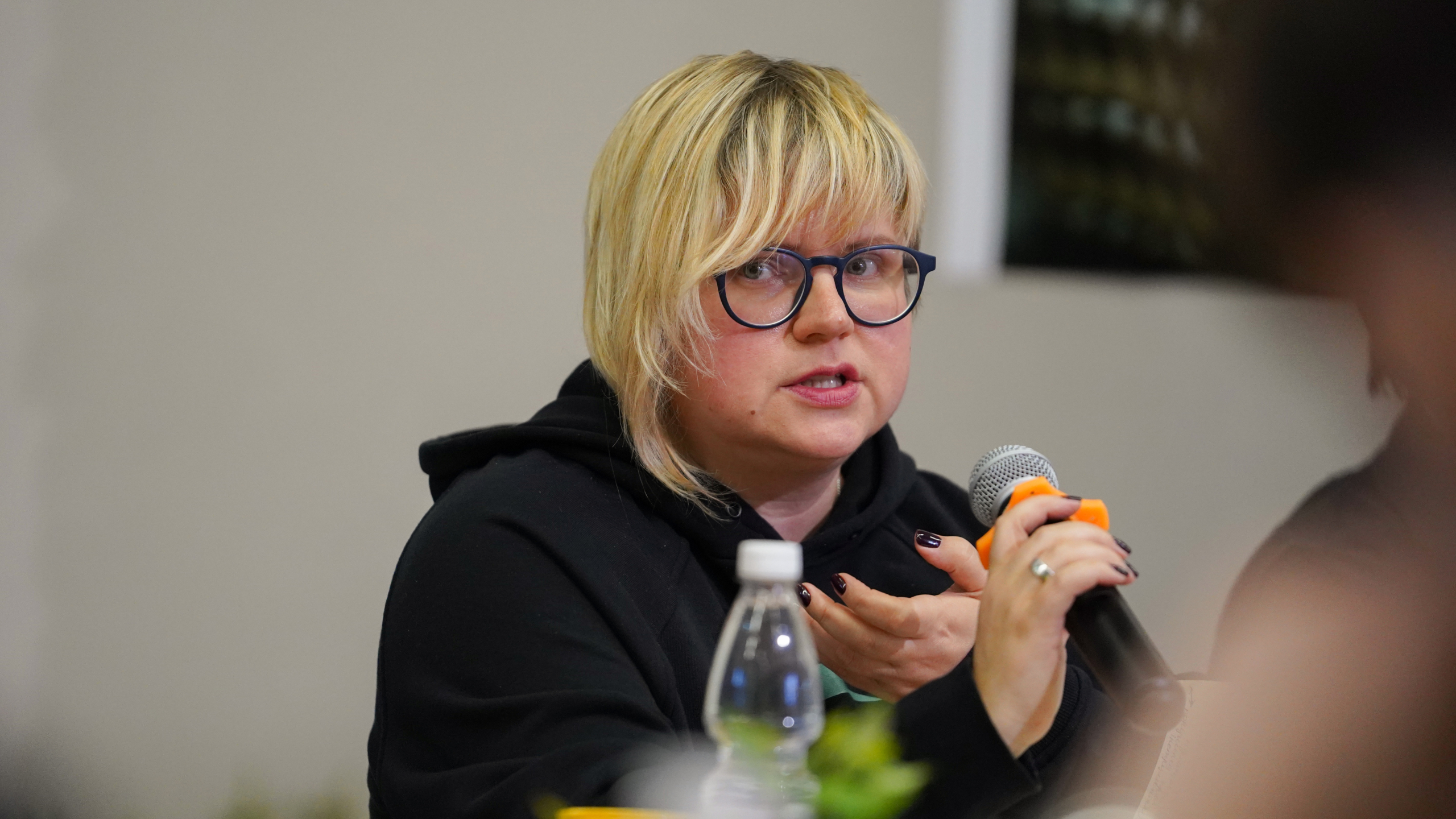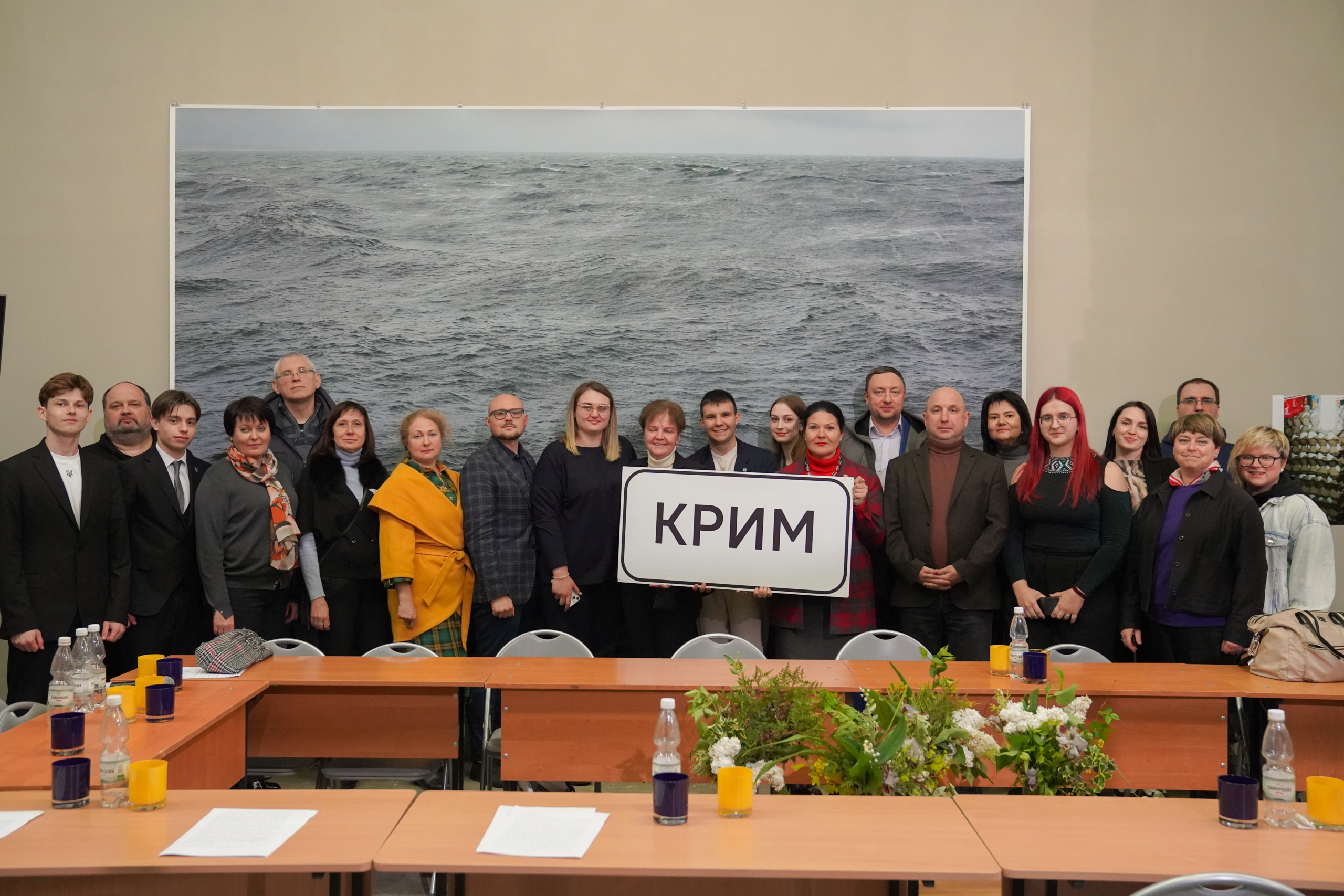“Soft power” and repression as tools of occupation: Alena Lunova at a roundtable in Kharkiv
On 13 May 2025, V. N. Karazin Kharkiv National University hosted a roundtable titled “Ukrainian Crimea: Historical and Political Dimension in the Context of the Present”. The event was organised by V. N. Karazin Kharkiv National University, the Educational and Research Institute “Institute of Public Administration” of V. N. Karazin KhNU and the Mission of the President of Ukraine in the Autonomous Republic of Crimea.

Representatives of the Mission of the President of Ukraine in the Autonomous Republic of Crimea, academics, experts on state policy on de-occupation, human rights defenders and teachers attended the roundtable. Among the speakers were: Rector of V. N. Karazin Kharkiv National University Tetiana Kahanovska, Director of the Institute of International Relations Lyudmila Belova, Historian, a PhD candidate Martin-Oleksandr Kisly, Advocacy Director of the Human Rights Centre ZMINA Alena Lunova, Co-founder of the National Platform for Resilience and Social Cohesion, expert of the Center for Independent Political Research Yulia Tyshchenko and Head of the Department of Information Support of the Mission of the President of Ukraine in the Autonomous Republic of Crimea Yevhen Bondarenko.
In her speech, Alena Lunova stressed that Russia is instrumentalising massive human rights violations to subjugate the civilian population in the temporarily occupied territories, including Crimea.
“Enforced disappearances, torture, forced passportisation, deportation, replacement of the population – all these violations are not accidental, but are manifestations of the Russian Federation’s deliberate policy. In addition, by illegally incorporating Crimea into its territory, the Russian Federation has extended its legislation and administrative practices to the occupied territories,” said Lunova.
 Alena Lunova
Alena LunovaThe human rights defender also stressed that it is not only the actions of the Russian armed forces, but also the so-called soft power: funding for education, culture, educational programmes, holding various festivals – everything that can spread Russian narratives. “These narratives are often difficult to catch, but they are purposefully used by Russia to further absorb the occupied territory,” said the Advocacy Director of ZMINA.
According to Lunova, it is extremely important for Ukraine to constantly collect and analyse information about the occupied Crimea and the impact of Russian policies to be able to adjust its state policy towards the temporarily occupied territories in a timely manner.

The event brought together students, professors and invited experts to discuss key aspects of the occupation, as well as the state’s priority steps after de-occupation and during the reintegration of Crimea.
Photo: Kamila Rakhmatillaieva, Mykhailo Protsenko, V. N. Karazin Kharkiv National University.
If you have found a spelling error, please, notify us by selecting that text and pressing Ctrl+Enter.















